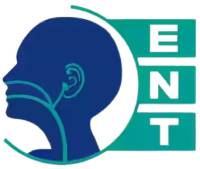Dysphagia
Exploring Dysphagia: Causes, Symptoms, and Treatment with Dr. Nilopher Qureshi
Dysphagia, a medical disorder characterized by difficulties swallowing, makes eating, drinking, and speaking uncomfortable. It is caused by a variety of causes, including neurological diseases and structural difficulties with the neck or esophagus. Understanding dysphagia and its treatment options is critical for improving quality of life and maintaining proper nutrition and hydration. Seeking professional advice is critical when dealing with dysphagia. Dr. Nilopher Qureshi, Bhopal’s renowned ENT expert, is the best choice for anyone suffering with dysphagia. Dr. Qureshi’s broad skills and caring attitude allow her to provide individualized examination and treatment that addresses each patient’s specific needs.

Dysphagia, or difficulty swallowing, can interrupt a person’s everyday life, affecting nutrition and well-being. Dr. Nilopher Qureshi, Bhopal’s leading ENT specialist in dysphagia therapy, is committed to delivering thorough care. Dr. Qureshi understands the difficulties of dysphagia and provides tailored evaluation and treatment to ensure patients regain the ability to swallow securely and comfortably. Individuals can overcome the difficulties of dysphagia under her supervision, enhancing their quality of life and nutritional status.
Symptoms of Dysphagia
The symptoms of dysphagia can vary depending on the underlying cause but often include:
- Difficulty swallowing solids, liquids, or both
- Sensation of food getting stuck in the throat or chest
- Pain or discomfort while swallowing
- Regurgitation of food or saliva
- Drooling
- Coughing or choking while eating or drinking
- Recurrent pneumonia or respiratory infections
Dysphagia can stem from various causes, including
- Neurological disorders (e.g., stroke, Parkinson’s disease)
- Structural abnormalities (e.g., esophageal strictures, tumors)
- Gastroesophageal reflux disease (GERD)
- Muscle weakness (e.g., muscular dystrophy, myasthenia gravis)
- Aging-related changes
- Trauma or injury
- Radiation therapy
- Certain medications
- Psychological factors (e.g., anxiety)
Diagnosis and Treatment
Diagnosing dysphagia typically involves a thorough evaluation by a healthcare professional, including a physical examination and diagnostic tests such as a barium swallow or endoscopy.
Swallowing Therapy
Working with a speech therapist or swallowing specialist to learn techniques and exercises to improve swallowing function.
Dietary Modifications
Adjusting the texture or consistency of foods and liquids to make swallowing easier and safer.
Positioning Techniques
Changing body position while eating or drinking to facilitate swallowing and reduce the risk of aspiration.
Medications
Treating underlying conditions that contribute to dysphagia, such as acid reflux or neurological disorders.
Surgical Interventions
In some cases, surgical procedures may be recommended to address structural abnormalities or blockages in the throat or esophagus.
Frequently Asked Questions about Dysphagia
Dysphagia is a medical condition characterized by difficulty swallowing food, liquids, or saliva.
Common causes of dysphagia include neurological disorders, structural abnormalities in the throat or esophagus, gastroesophageal reflux disease (GERD), muscle weakness, aging-related changes, trauma or injury, radiation therapy, certain medications, and psychological factors.
You should see a doctor if you experience persistent difficulty swallowing, have pain or discomfort while swallowing, have trouble breathing or swallowing saliva, or notice unintended weight loss associated with dysphagia.
The treatment and management of dysphagia depend on the underlying cause. While some cases of dysphagia may be alleviated with therapy or treatment, others may require ongoing management to improve symptoms and quality of life.
Yes, dysphagia can lead to complications such as malnutrition, dehydration, aspiration pneumonia (lung infection caused by inhaling food or liquid into the lungs), and social isolation due to difficulty eating in social settings.
Individuals suffering from dysphagia might benefit from the assistance of Dr. Nilopher Qureshi, an ENT expert in Bhopal, who can give individualized evaluation and treatment choices.
